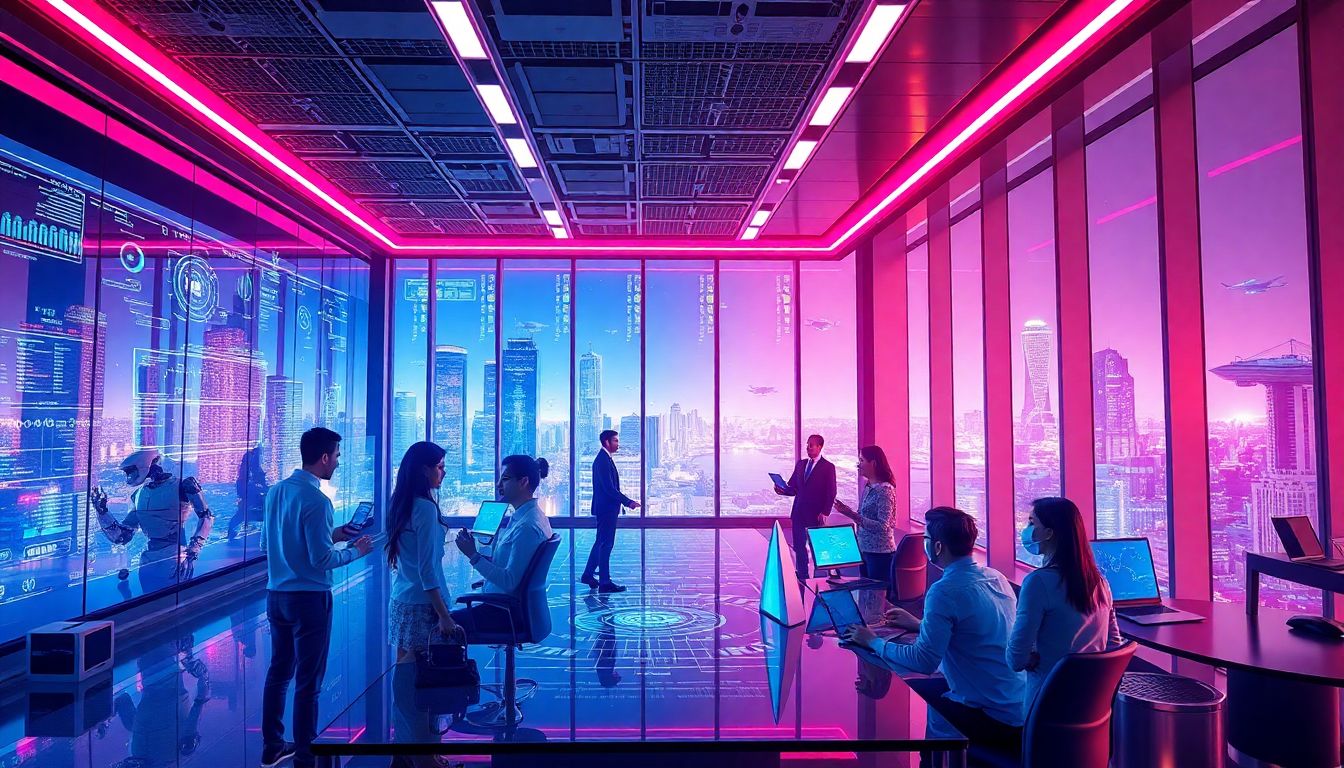Impact of Artificial Intelligence on Employment and Careers

Is AI the New Job of the Future? Exploring the Impact of Artificial Intelligence on Employment and Careers
Introduction
Artificial Intelligence (AI) is no longer just a tech buzzword. It’s rapidly changing how businesses run. From helping doctors diagnose diseases to automating factory lines, AI is everywhere. This growth sparks a big question: Will AI replace jobs or create new ones? Many wonder if AI will be the new job of the future, changing careers as we know them. Understanding this shift can help you prepare for what comes next.
The Rise of AI in the Workforce
The Evolution of Artificial Intelligence
AI has been around for decades. It started with simple programs in the 1950s. Over years, milestones like IBM’s Deep Blue beating chess champions and Alexa’s voice recognition showed progress. Today, AI can understand language, recognize images, and make decisions. Its capabilities grow as the technology gets smarter, faster, and more affordable.
AI Adoption Across Industries
Many industries were quick to adopt AI. Healthcare uses it for faster diagnoses. Banks rely on AI for fraud detection. Manufacturing plants use robots for assembly lines. AI makes operations smoother and helps managers make better choices. Its reach keeps expanding into new fields all the time.
Benefits of AI Integration
Integrating AI leads to many advantages. It boosts productivity by automating routine tasks. Companies also become more innovative with new products and services. Using AI cuts costs, which helps businesses stay competitive. Overall, AI can transform how work gets done efficiently and creatively.
Jobs AI Is Transforming or Replacing
Automated Tasks and Job Displacement
Automation hits jobs with repetitive work. In factories, robots now assemble cars faster than humans. Customer service roles are changing as chatbots handle simple questions. Data shows that many routine jobs are at risk because machines do them quicker and cheaper. Still, this shift frees people to focus on more complex tasks.
New Job Categories Emerging
While some jobs disappear, new ones grow. Companies now seek AI specialists to program and manage these systems. Data analysts are in demand to interpret AI outputs. Ethical guides on AI fairness are also emerging as an important role. These new careers help businesses harness AI’s power responsibly.
Skill Shifts in the Workplace
To stay relevant, workers need new skills. Digital literacy, problem-solving, and creativity are more important than ever. Learning how to work with AI tools becomes part of the job. Continual learning helps us adapt to a changing job scene and stay employed long-term.
The Future of Work with AI
Predictions from Industry Experts
Leaders like Satya Nadella and Sundar Pichai believe AI will create as many jobs as it replaces. The key is how quickly workers learn new skills. Experts see AI as a tool to enhance jobs, not take them all away. Trends indicate AI will keep improving, making future careers more tech-driven.
Opportunities AI Presents for Job Seekers
Fields like AI development, cybersecurity, and human-AI collaboration show promise. If you want to stay ahead, consider upskilling through online courses or certifications. Gaining knowledge in these areas can open new doors. Focus on areas where human skills and AI together shine, like creative problem-solving and emotional intelligence.
Challenges and Ethical Considerations
AI can lead to unemployment if not managed well. Economic gaps may widen, causing social issues. There are also concerns about bias in AI decisions, like hiring or lending. Responsible AI use needs strict rules and ethics. Companies and governments must work together to prevent misuse and ensure fairness.
Preparing for an AI-Integrated Job Market
Education and Training Strategies
Learning should never stop. Emphasize STEAM education—science, technology, engineering, arts, and math—that prepares us for future work. Online platforms now offer courses, boot camps, and certifications. These resources make learning accessible and fast, helping you stay competitive.
Company Initiatives and Policy Recommendations
Many firms now include training programs for their staff. Some governments push policies for reskilling workers, especially those displaced by AI. These measures help workers transition smoothly into new roles. Encouraging a culture of lifelong learning at workplaces makes a big difference.
Personal Action Plan for Job Security
Start by checking your skills gaps—what do you need to learn? Focus on adaptable skills like teamwork, communication, and tech literacy. Stay curious about new tools and trends. Emphasize qualities like creativity and emotional intelligence, which AI can’t easily replace. The more flexible you are, the better prepared you’ll be.
Conclusion
AI is a powerful force that can shake up jobs but also create new opportunities. The key lies in how we choose to adapt. Instead of fearing AI, see it as a tool to help us grow and improve. Investing in learning new skills and staying open to change will shape your future. Remember, whether AI becomes the new job of the future depends on how we embrace its potential—to empower us, not replace us.
Comments
Post a Comment